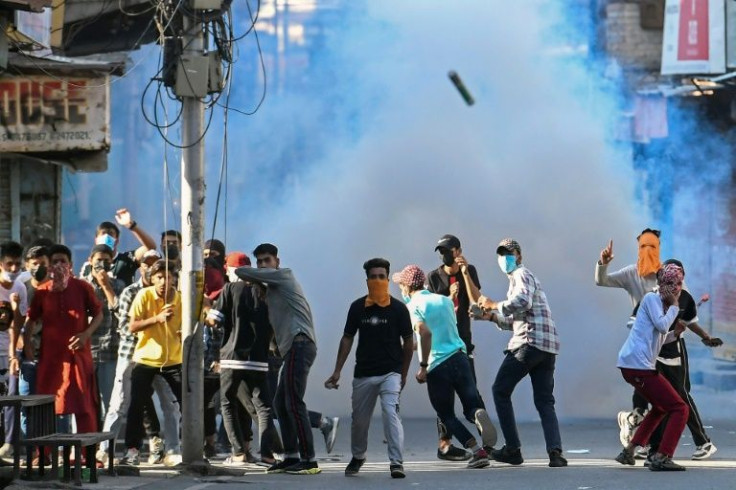India Jails Kashmir Independence Leader For Life
A former militant and campaigner for Kashmir independence was sentenced to life imprisonment on terrorism charges Wednesday by an Indian court.
Mohammad Yasin Malik renounced violence in 1994 to campaign peacefully for the "liberation" of Kashmir, which has been split between India and Pakistan since 1947 and which both claim in full.
Last week, an Indian court convicted the 56-year-old, who has spent years in prison and has been in custody since 2019, of terrorism and funding acts of terror.
The National Investigation Agency (NIA), India's top anti-terrorism investigation body, had asked that Malik be given the death sentence, but the court instead sentenced him to life.
"We will take a decision on what strategy we have to adopt following the life imprisonment of our leader," Khawaja Saif Din, vice-chairman of the Jammu and Kashmir Liberation Front (JKLF), which Malik heads, told AFP by phone.
"Our group was holding negotiations with the Indian government for the solution of the Kashmir issue. But today, India has compelled Kashmiris to again take up arms against it."
Crowds of several hundred gathered in Pakistan-administered Kashmir before the sentence was announced to call for Malik's release.
Large parts of Srinagar in the Indian-controlled part of the disputed region were deserted following a shutdown call by the JKLF.
Authorities severed internet connections in the city and police fired tear gas near Malik's home to disperse scattered groups of protesters, who shouted slogans demanding his freedom.
"Today is a black day for Indian democracy," Pakistani Prime Minister Shehbaz Sharif tweeted in reaction to the verdict.

"India can imprison Yasin Malik physically but it can never imprison (the) idea of freedom he symbolises."
Kashmir has long been a source of tension between India and Pakistan and has been the spark for two of their three wars.
In the part of Kashmir controlled by India, militants -- wanting either to be part of Pakistan or independence -- have fought the Indian military for three decades.
Tens of thousands of people have died in the violence, most of them non-combatants. India accuses Pakistan of arming and backing the rebels, a charge Islamabad denies.
In 2019, Indian Prime Minister Narendra Modi's Hindu nationalist government imposed direct rule on the Muslim-majority region, arresting hundreds of people and shutting down the internet for months.
A former student activist from humble roots, Malik led one of the first groups of Kashmiri fighters who crossed to Pakistan-administered Kashmir for arms training, and returned to the Indian-controlled part of the territory as chief commander of the JKLF in 1989.
That year, members of the JKLF under Malik's leadership abducted the daughter of India's home minister at the time -- a Kashmiri politician -- and had five of its top fighters freed from jail in a swap.
He was first arrested in 1990 by Indian forces and has spent several years in different jails since. He has alleged he was tortured for years in various Indian detention centres.
Malik led hundreds of armed fighters until 1994 when he renounced violence and adopted peaceful, "Gandhian" ways to become the chairman of the JKLF. He has since campaigned for Kashmir's right to self-determination.
He has had talks several times with the New Delhi government, including with two previous prime ministers.
© Copyright AFP 2024. All rights reserved.







